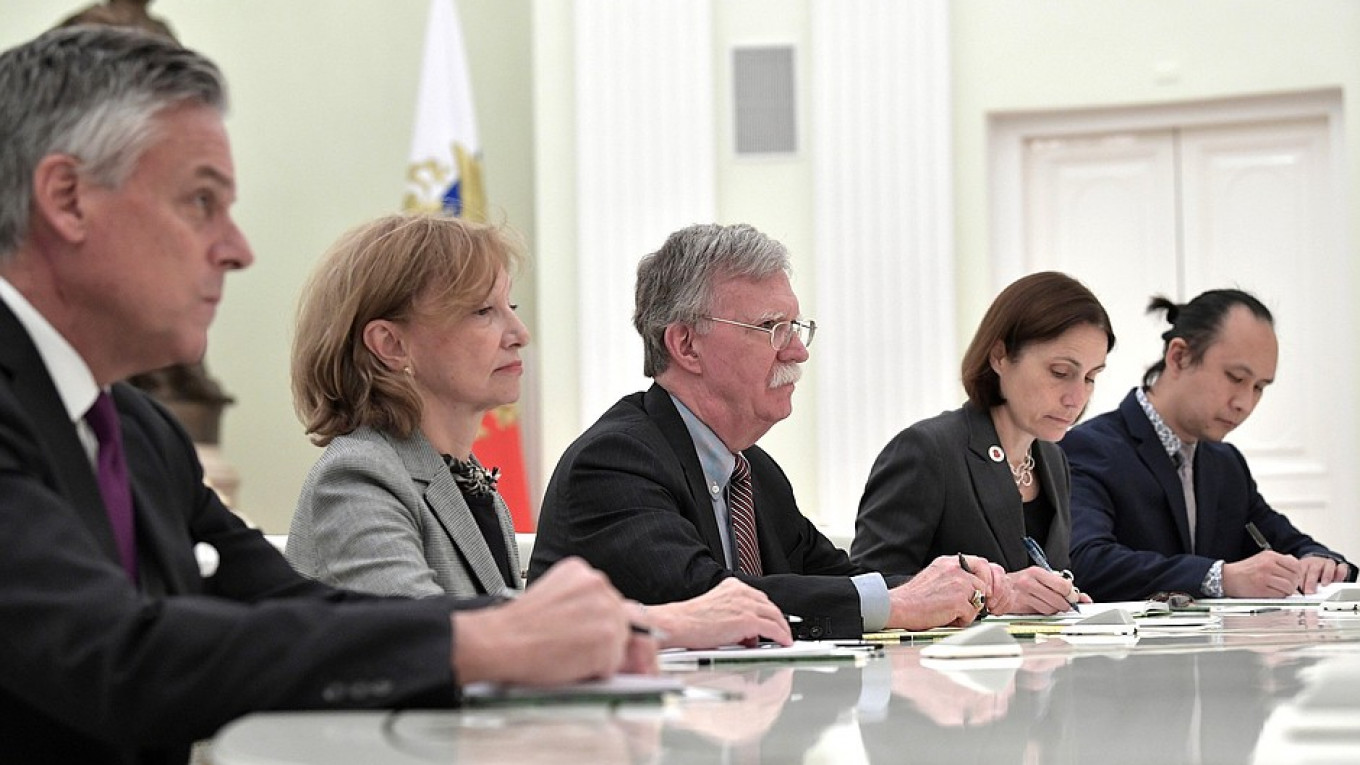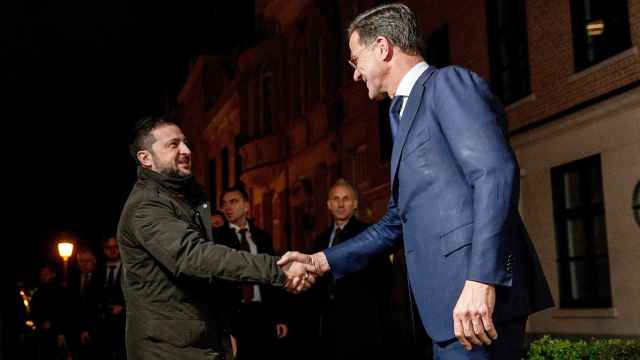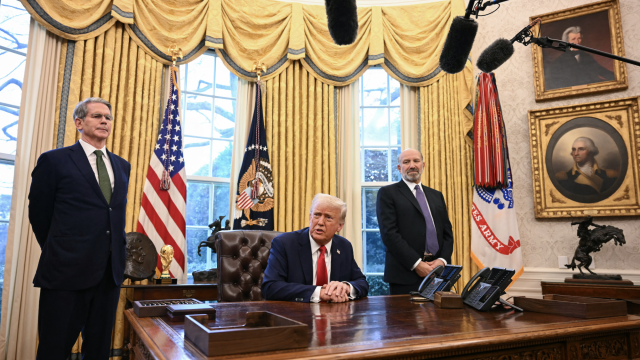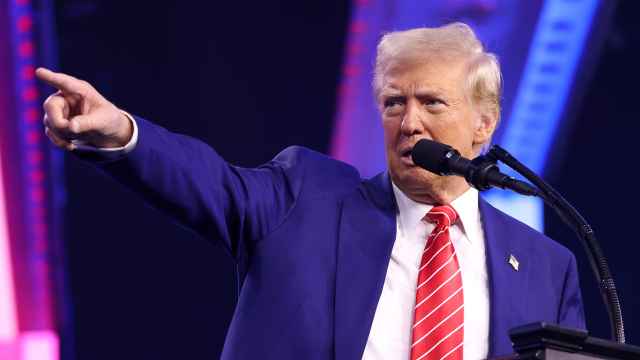Next Monday, security chiefs from the U.S., Russia and Israel will meet in Jerusalem to discuss “regional security issues”. This bizarre arrangement, excitedly billed in Israel as a “security summit”, but downplayed by Moscow as “expert consultations”, will bring together for two days Russia’s Secretary of the Security Council Nikolai Patrushev, U.S. National Security Advisor John Bolton and Israeli Chairman of the Security Council Meir Ben-Shabbat.
It was an Israeli initiative to discuss the situation in Syria and Iran’s “malign role” in the region. The Israelis handled almost all the preparatory work, dispatching teams to Washington and Moscow with little direct interaction between Russia and the U.S.
For Moscow, it is really awkward to discuss issues surrounding Iran, Russia’s regional partner and, since 2015, a military ally in Syria, with Iran’s sworn enemies — Israel and the United States, — in Jerusalem and in the midst of a major spike in US-Iran tensions that might well end up in a military collision. Russia knows that the Israelis and the Americans will try to drive a hard anti-Iran agenda that Russia does not share.
The trilateral format is also a downgrade for Russia’s exclusive peer-to-peer dialogue with the U.S.
There is ample speculation about some “Grand Bargain” in which Russia would agree to drive Iran out of Syria in exchange for U.S. and Israeli recognition of the Syrian regime and U.S. lifting sanctions on Syria, opening the doors for the post-war international reconstruction funding. This is not in the cards.
Washington is building up expectations for some “new Russian proposals” to reduce Iran’s role in Syria, but is likely to be disappointed. Moscow will not go beyond the promises made to Trump in Helsinki last year to keep Iranian proxi forces at least 80 kilometers from the Israeli border. Foreign Minister Lavrov’s statement a year ago that any expectations that Russia could get the Iranians out of Syria are “unrealistic” still stands today.
Even more so, the latest regime offensive in Idlib, in which Iranian controlled ground units are not taking part, have made the point clear to Moscow — without Iran, the Syrian regime cannot hold the ground and suppress the Sunni insurgency.
While Russia is competing with Iran for influence and spoils in Syria and is unhappy with some Iranian moves (like securing a naval presence not far from the Russian base in Tartus), Moscow cannot afford a direct collision with Iran in Syria where the Iranians could make Russia’s life miserable and costs soaring.
The Israeli-Palestinian conflict and the new U.S. peace plan are not likely to loom large in the trilateral talks. Israel is not interested, while Bolton is happy to delegate this thankless portfolio to Jared Kushner.
Moscow reluctantly went along with the Jerusalem meeting largely to secure significant facetime with Bolton just days before the widely announced on Twitter, but yet to be confirmed, Trump-Putin meeting on the sidelines of the G20 summit in Osaka, Japan. It would be the last chance to put some meat on the bones of what at this point promises to be another photo-op with no substantive agreements.
A week from Osaka, there is no understanding whether Putin and Trump would sit down for a full bilateral, as was planned for the last G20 in Buenos Aires, or would have a brief stand-in or walk-along interaction as it happened at the APEC summit in Hanoi in 2017 or the G20 in Argentina last year.
Almost no preparation to speak of has occurred since Secretary Pompeo’s visit to Sochi in early May. No additional channels of communications, despite a seeming agreement with Pompeo, have been opened.
A “strategic security” meeting in Prague last week between Russia’s Deputy Foreign Minister Sergei Ryabkov and Undersecretary of State Andrea Thompson ended without any agreement or a commitment for a sustained dialogue on arms control.
Both Russia and the U.S. are signaling that they might not be interested in extending the New START Treaty, while neither side is making any moves to save the INF Treaty which will terminate on August 2.
It is not clear what Bolton and Patrushev could accomplish in such constrained timeframes. When Pompeo came to see Putin last month, the U.S. indicated interest in Russian assistance in bringing Iran and North Korea to the negotiating table with the Trump administration, as well as engineering a political settlement in Venezuela.
This indicates the diplomatic priorities for Trump’s presidency and his prospects in 2020.
Moscow would not mind helping Trump out, but it cannot serve as a provider of free geopolitical services to Washington. As Putin made it clear to Pompeo, there is a price — a full reversal of U.S. confrontational policies against Russia, including the lifting of all sanctions.
After all, it would be illogical to treat Russia as an enemy and then ask it for favors. Pompeo was noncommittal. Bolton is unlikely to be more forthcoming.
And even if Russia agreed to help, it cannot make progress with either Iran or North Korea without substantive changes in the all-demanding and unyielding U.S. position. Moscow cannot go to Pyongyang with Bolton’s “Libya model” for denuclearisation or to Teheran with Pompeo’s twelve “regime change” conditions. It cannot even convince Maduro that his future lies in Bolton’s tweet about a happy life on a sunny beach in Cuba.
No breakthrough in U.S.-Russia relations is in the cards before the end of Trump’s first term. The announced departure at the end of August of Fiona Hill, the NSC’s Senior Director for Europe, Russia and Eurasia, and the all but confirmed departure from Moscow of U.S. Ambassador John Huntsman at the end of the year are clear signs of diminished expectations and a realistic view that the U.S. presidential campaign will not be a great time to push an ambitious agenda in U.S.-Russia relations.
Muddling through without a new crisis would be an accomplishment.
A Message from The Moscow Times:
Dear readers,
We are facing unprecedented challenges. Russia's Prosecutor General's Office has designated The Moscow Times as an "undesirable" organization, criminalizing our work and putting our staff at risk of prosecution. This follows our earlier unjust labeling as a "foreign agent."
These actions are direct attempts to silence independent journalism in Russia. The authorities claim our work "discredits the decisions of the Russian leadership." We see things differently: we strive to provide accurate, unbiased reporting on Russia.
We, the journalists of The Moscow Times, refuse to be silenced. But to continue our work, we need your help.
Your support, no matter how small, makes a world of difference. If you can, please support us monthly starting from just $2. It's quick to set up, and every contribution makes a significant impact.
By supporting The Moscow Times, you're defending open, independent journalism in the face of repression. Thank you for standing with us.
Remind me later.








